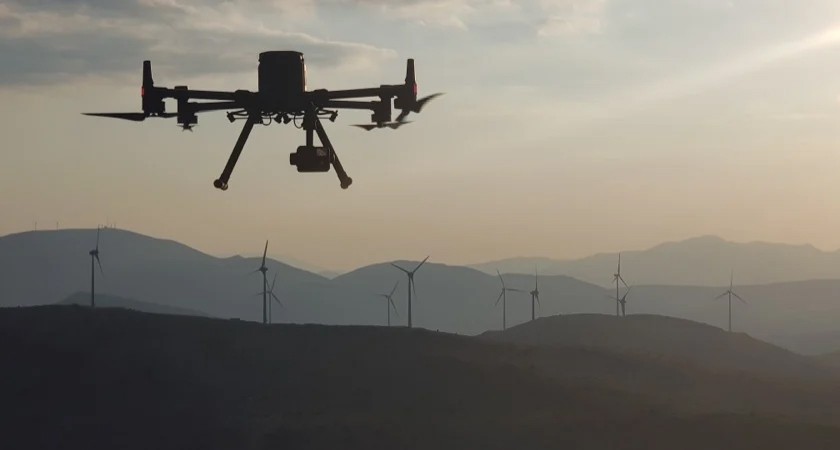
In this critical hour, drones are being observed as the driver of change, assuming an important role in global efforts towards decarbonisation and the exploration of sustainable solutions to rapidly increasing environmental challenges. In this edition of our newsletter, we will explore the various ways drones are contributing to the collective global effort to mitigate climate change and drive humanity towards a sustainable future.
Drones are demonstrating substantial capabilities in the fight against climate change and we are seeing an increase in drones being used for ecosystem monitoring. Concurrently, these unmanned aerial vehicles (UAVs) are being utilised in protected rainforest reserves such as the Amazon to monitor atmospheric composition and chemical exchanges across vast expanses of vegetation. Additionally, drones are actively deployed at archipelagos and atolls in the Great Barrier Reef for mapping and monitoring, offering valuable insights into changes in reef ecosystems in conjunction with climate change.
Providing critical insights and predictions, drones are helping environmental scientists and activists with accurate and effective data on demand.

The versatility of drones in environmental conservation further extends to aiding reforestation projects worldwide. In Abu Dhabi, the Environment Agency has employed drones to successfully plant over one million mangrove seedsas part of a larger conservation initiative. Meanwhile, Canada is harnessing drone technology to rejuvenate forestlands destroyed by wildfires. These successes underscore the efficacy of drones in distributing seeds across extensive terrains, reinforcing their critical role in achieving global conservation objectives.
Beyond anti-poaching initiatives, drones are facilitating the observation of animal migration patterns and behaviour. High-resolution images and videos captured from unique aerial perspectives assist scientists in decoding many secrets of how global climatic changes are affecting animal behaviour and their habitats. From counting penguins in the Arctic to monitoring monarch butterfly habitats, the information gathered is being explored globally to strengthen the efforts aimed at wildlife preservation.
In the domain of renewable energy, the integration of drones is marking a significant stride towards enhanced efficiency and sustainability. Key advancements such as Beyond Visual Line of Sight(BVLOS) and Autonomous Drone Docking stations have reinforced the role of drones in promoting eco-friendly operations. Known for their versatility, drones are actively being deployed globally for powerline monitoring, and inspections of solar and wind farms contributing to combined net-zero emissions and uninterrupted energy generation and distribution.
For instance, the mega solar fields in the Middle East, like the Mohammed bin Rashid Al Maktoum Solar Park, deploy drones to inspect and maintain vast expanses of infrastructure with precision and efficiency. Utilising drones significantly reduces carbon emissions in solar farm operations, strengthening the region’s commitment to a sustainable and clean future.

Drones are making a notable difference in the realm of agriculture by providing advanced solutions for precision agriculture, contour mapping, crop assessment, and spraying. Their integration with sophisticated drone technology, such as multispectral scannersand diverse sensors, allows monitoring of crop health and environmental variables.
Drones have become critical in enabling informed decision-making for crop management and farming practices, accelerating the progress towards more sustainable and efficient agricultural operations. The use of drones in agriculture aligns the industry with the global movement for enhanced sustainability and environmental consciousness in farming practices.

The average global temperature has risen by at least 1.1° Celsiusover the last century with the majority of the change amounting to the period after 1975! In this critical era of climate change, drones, with their proven capabilities in ecosystem revitalisation, wildlife protection, clean energy and agriculture, emerge as a valuable tool for environmental conservation.
As drone technology consistently advances, its significant role in tackling climate change and conserving the world’s critical resources continues to grow, the global community looks forward to the expanding positive influence of drones on the planet’s well-being.